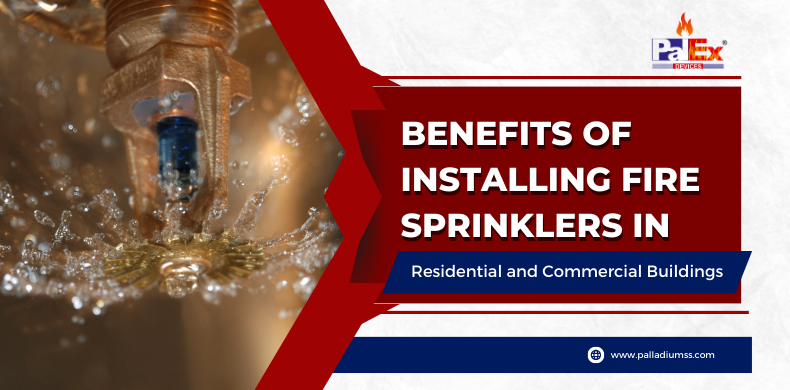The different types of fire sprinklers commonly used in residential and commercial buildings:
1. Upright Sprinkler: Upright sprinklers are installed upright or vertically, with the deflector facing downward. These sprinklers are commonly used in areas with exposed ceilings or where the sprinkler system is installed below a floor.
2. Pendent Type Sprinkler: Pendent sprinklers are the most common and widely used type of fire sprinkler. They are designed to hang from the ceiling with the deflector (a metal plate redirecting water) positioned below the sprinkler head.
3. Sidewall Type Sprinkler: Sidewall sprinklers are installed along the walls, near the ceiling line. They are beneficial in spaces where a pendant sprinkler might not be suitable due to obstructions or architectural constraints.
Rapid Response and Early Fire Suppression
The primary advantage of fire sprinkler systems is their ability to respond swiftly to a fire outbreak.
Unlike traditional fire alarms, which only notify occupants of a fire, sprinkler systems are equipped to combat the flames actively.
When a fire is detected, the sprinklers activate and release a controlled amount of water or extinguishing agent directly onto the source of the fire.
This rapid response significantly reduces the fire’s growth and prevents it from spreading further, giving occupants more time to evacuate safely.
Minimises Property Damage
Fire sprinklers can dramatically minimize property damage by suppressing the fire at its inception.
In many cases,
- 1. They can extinguish the fire before it spreads beyond its origin.
- 2. Reducing the loss of valuable assets.
- 3. Documents irreplaceable personal belongings.
This aspect is especially crucial for commercial establishments, where inventory, equipment, and infrastructure damage can lead to severe financial losses.
Enhances Life Safety
Cost-Effective Investment
Although installing fire sprinklers requires an initial investment, the long-term benefits outweigh the costs.
1. The reduction in property damage
2. Potential insurance premium discounts.
3. The preservation of human life justify the expense.
Additionally, when compared to the exorbitant costs of recovering from a severe fire incident, installing fire sprinklers becomes a highly cost-effective measure for residential and commercial property owners.
Lower Insurance Premiums
Insurance companies recognise the substantial risk reduction offered by fire sprinkler systems.
Consequently, many providers offer discounted insurance premiums for buildings equipped with these fire safety mechanisms.
Installing fire sprinklers enhances your property’s protection and contributes to long-term cost savings by reducing insurance expenses.
Code Compliance and Regulatory Benefits
1. Fire sprinkler systems often help buildings comply with local fire safety codes and regulations.
2. Many jurisdictions require fire sprinkler installations in new constructions or major renovations, particularly for more significant commercial or multi-family residential structures.
3. By meeting these requirements, property owners avoid potential fines and legal repercussions while ensuring the building’s overall safety and structural integrity.
Conclusion
Installing fire sprinkler systems in residential and commercial buildings is essential to mitigating the devastating effects of fire accidents.
These life-saving and property-protecting systems provide rapid response and early suppression capabilities, minimizing damage and offering valuable evacuation time.
Moreover, the cost-effectiveness, insurance premium reductions, and regulatory compliance benefits make fire sprinklers a wise and responsible investment for any property owner.
In pursuing fire safety, it is crucial to consider installing fire sprinkler systems to protect lives and property for years to come.

